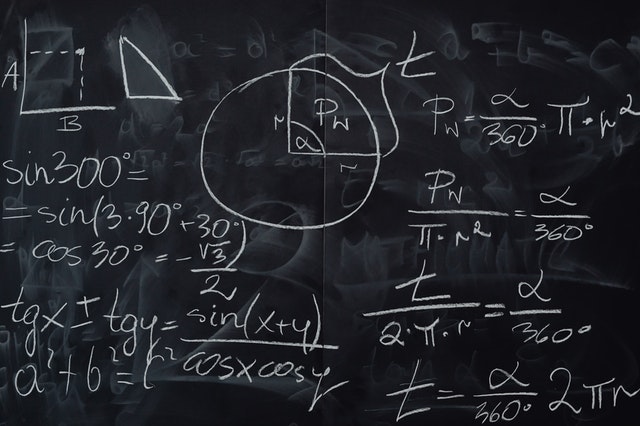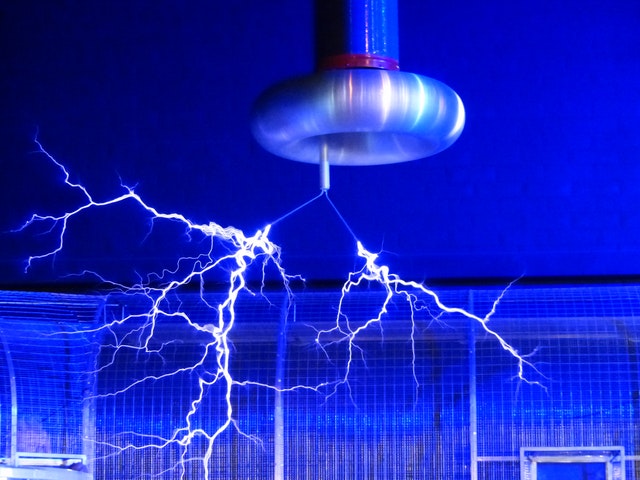
A-Level Physics is one of those A-Levels that has a reputation for being very demanding and hard to complete. Being a science based course, A-Level Physics requires a lot of Mathematics to carry out the various formulas. And because of this, the course is often studied alongside A-Level Mathematics. Physics itself is a natural science and involves the study of matter. It also looks at motion through space and time, including related concepts such as energy and force.
Unlike humanities A-levels (such as History or Geography), A-Level Physics doesn’t require a lot of long assessments or coursework pieces. The work instead is more based on using experiments and formulas. These are used to enable students to study nature in an attempt to understand how the universe behaves and why.
Is A Level Physics a hard Subject to Study?
Physics is one of those subjects that has a reputation for being tricky. A very practical subject in nature, Physics can be linked to and relate to almost everything in day to day life. The truth is, as all A Levels are based on a certain level of difficulty, no one subject can be classed as particularly hard or difficult. That said, if you don’t enjoy being in a lab carrying out experiments, chances are you’re not going to enjoy the subject as a whole.
The course will need you to be analytical and apply a lot of calculations to your work, so you need to be prepared to work with numbers and formulas a lot. So again, if you don’t enjoy that sort of thing, you’re going to find the subject harder than others.
Does A Level Phsyics have Practicals?
Yes. Like all the sciences studied at A Level, Physics does have practical elements to it. These will need to be both practiced and assessed at your exam centre ready for submission with your written examination papers. The practicals themselves are designed to give students a chance to demonstrate their ability with the subject. You will need to demonstrate designing and developing experiments, collecting and understanding data and also the ability to record results.
What about the Examinations?
When it comes to the examinations for A-Level Physics, there are three written exam papers. Along with the written exams, students have to complete practicals. These practical elements require you to attend a laboratory, where you are assessed as part of your final grade. The practicals tend to be based on a wide range of physical concepts and processes that include diagrams and circuit building.
If you are a student doing the practicals, you do not have to do them in the summer exam series. You can opt to spread your practical assessment through your learning time. Written exams for the course are always held in the summer exam period with all the other students taking the course.
What Subjects work well with A Level Physics?
As Physics is a scientific subject, it works well with other similar subjects. Students often combine their study of Physics with the following courses:
Can you Study A Level Physics Online?
Although A Level Physics has practicals as well as exams, it is possible to study the course online. Obviously, the practicals can’t be done in your home, but the theory of what you need to know and be able to do can be. So as you work through your online course materials, you will learn what you need to do and perform when it comes to being assessed. Believe it or not, completing your practicals as a distance learner is very simple.
Regardless of which Awarding Body you would like to study your A level with, you can study the course online. A quick Google search will show you all the colleges offer AQA, Pearson Edexcel and Cambridge courses. And what’s more, the qualification you gain after completing your course is exactly the same as what you would have got from school or college.
What Degrees can you Study with A-Level Physics?
Due to the nature of A-Level Physics and the problem solving skills that it equips students with, the course can lead to entry onto many Degree courses at many universities. Interestingly enough, the Degree courses are not just science based subjects either. Here are some examples of Degree you can study with the qualification:
- Electronics
- Computing
- Engineering
- Geography
- Geology
- Statistics
- Law
Ready to Enrol and Start Studying Physics?
£395.00
AQA A-Level Physics studies subjects like mechanics, particles, radiation and astrophysics. You will develop and hone your skills in the subject as well as gaining a real enthusiasm for the subject matter. Physics makes an ideal choice for those students with interests in medicine, science and engineering.
Studying A-Level Physics provides you with an understanding of the fundamental principles of the universe, giving you a great stepping stone to carry on your studies at university.
When can I start the courses? Right away.
How do I study the courses? Online.
Is there a tutor? Yes.
How long are the courses? 1 or 2 years (you decide).
Where can I read full course info? Full course information.
Can I spread the cost of my fees? Yes, we offer simple payment options with no interest.
Online AQA A-Level Physics Frequently Asked Questions:
How do I study the course? Online. Where can I study from? UK. How long is the course? 1 or 2 years. Are there entry requirements? No. What certificate do I get? AQA A-Level Physics What can I do with the qualification? Study degree qualifications or higher level Diplomas. What level is the course? Equivalent to Level 3 Diplomas, USA Advanced Placement Program, Matriculation Certificate. Are exams included? No, you have to book these separately. When can I start? At any time.More Information
Your online AQA A-Level Physics course will come with full tutor support for the length of your studies. You will have access through an online learning portal to all materials and information that you need to study and learn in preparation for your examinations. The course materials have been specially written to enable students to self study the course. You can work through the syllabus at a pace and rate that suits you. Within the course, there is a combination of interactive elements, reading and self assessment questions for students to enjoy and work through as they progress their studies. You can opt to study this A Level course over 1 year or 2. Fast tracking your learning is the best way to get your results quickly ready for University. If one year isn’t enough for your studies, you can extend your learning time for free. Examinations for AQA A-Level Physics are held every year in the June examination period. If you need more help or advice regarding studying this course, contact one of our helpful team for more assistance.AQA A-Level Physics Syllabus
This course will cover the following areas of study:- Develop mathematical and problem solving skills
- Understand how Physics is used in a wider context
- Preparation for further study and or careers related to the subject
- Understand the impact sciences have on both the economy and society
- Develop scientific explanations
- Analyse and interpret data
- Investigation into the variation of the frequency of stationary waves on a string with length, tension and mass per unit length of the string.
- Investigation of interference effects to include the Young’s slit experiment and interference by a diffraction grating.
- Determination of by a free-fall method.
- Determination of the Young modulus by a simple method.
- Determination of resistivity of a wire using a micrometer, ammeter and voltmeter.
- Investigation of the emf and internal resistance of electric cells and batteries by measuring the variation of the terminal pd of the cell with current in it.
- Investigation into simple harmonic motion using a mass-spring system and a simple pendulum.
- Investigation of Boyle’s (constant temperature) law and Charles’s (constant pressure) law for a gas.
- Investigation of the charge and discharge of capacitors. Analysis techniques should include log-linear plotting leading to a determination of the time constant.
- Investigate how the force on a wire varies with flux density, current and length of wire using a top pan balance.
- Investigate, using a search coil and oscilloscope, the effect on magnetic flux linkage of varying the angle between a search coil and magnetic field direction.
- Investigation of the inverse-square law for gamma radiation.
Examination Information
- AQA A-Level examinations can only be carried out in the UK.
- Examination period is in the June examination period.
- AQA A-Level Physics course code: 7408





